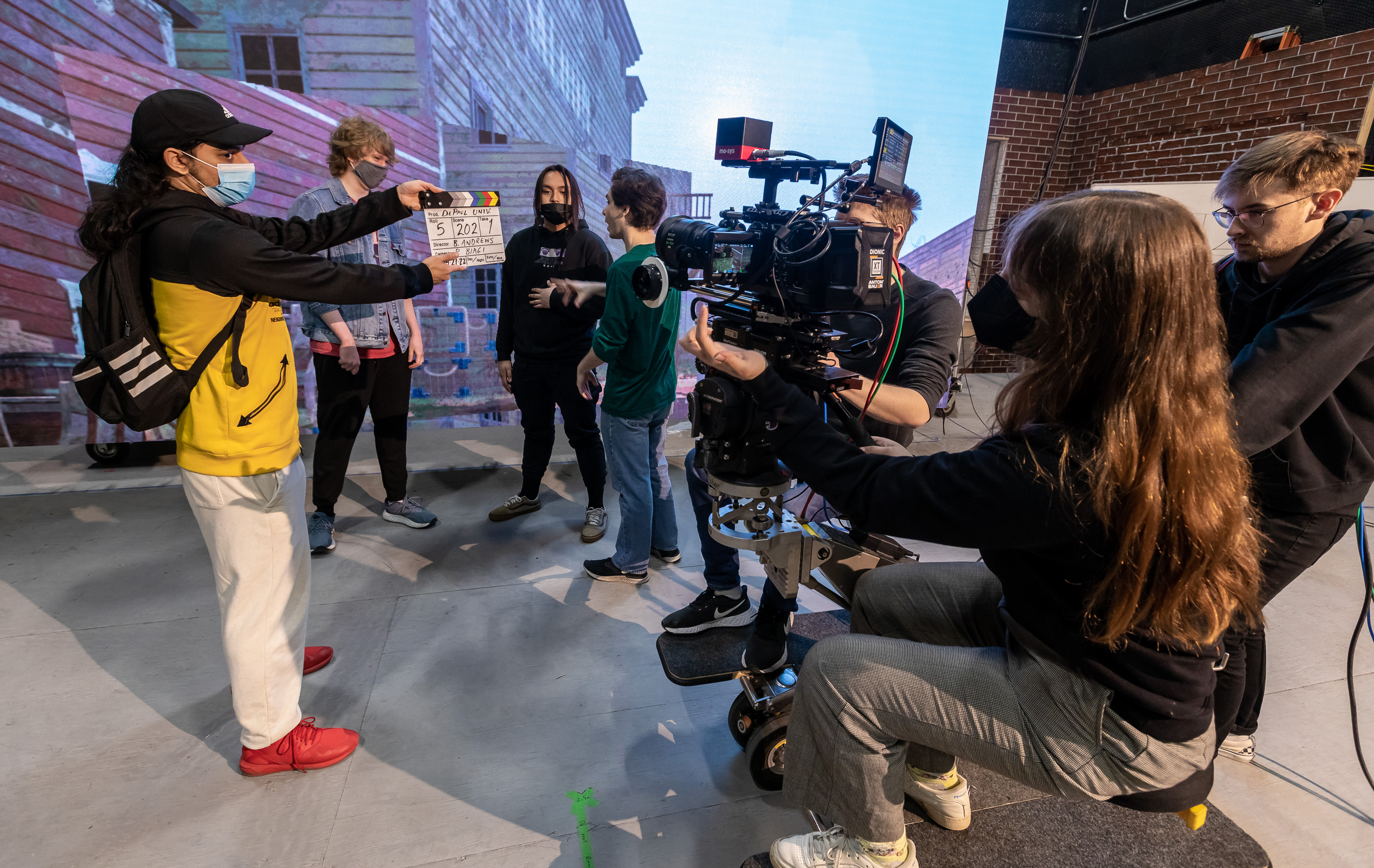 School of Cinematic Arts students are working with virtual production this quarter. DePaul is believed to be the first film school in the Midwest to have such technology available in-house to students. (DePaul University/Jeff Carrion)
School of Cinematic Arts students are working with virtual production this quarter. DePaul is believed to be the first film school in the Midwest to have such technology available in-house to students. (DePaul University/Jeff Carrion)
Making a realistic-looking movie set on a spaceship or with a high-speed car chase might seem out of reach for a film student. But this month, undergraduates in the School of Cinematic Arts are filming in these locations without leaving DePaul Cinespace Studios. Instead of a green screen, they are working in a virtual production environment. Students and faculty agree it's the future of filmmaking.
"The creative possibilities are really big for what a virtual production stage can do, but the technology itself is still in its infancy," says Brian Andrews, assistant professor and chair of post-production. It's the same technology that pros used in "The Mandalorian," "Westworld" and the Marvel films. In his
Project Bluelight course this spring, Andrews is approaching the technology as a laboratory for students to develop content and ideas.
"The industry is playing it safe using this technology because, at the end of the day, they have a client and a deadline," Andrews says. "Our students don't have the same limitations in their brains about what's possible. The level of risk is much lower, so we can try things and hopefully we can innovate."
Light and context give virtual production an edge over the green screen, Andrews explains. The LED wall replays and captures the background in real time, using a video game engine. "It creates an entire world around you," Andrews says. Actors feel more connected to the scene, and light interplays with faces and objects in a more realistic way.
Elevating visual effects at DePaul
Finding new and interesting ways to tell a story using emerging technology is at the heart of Andrews' work. He came to DePaul five years ago and has been working to bring student filmmakers and animators together to elevate their visual effects. Andrews' animated virtual reality film, "Hominidae," premiered at the Sundance Film Festival and was presented at the
Cannes Film Festival. He earned an
Academic Growth and Innovation Fund grant from DePaul to pilot the virtual production class, and he says it's giving students a chance to push the boundaries of this new technology.
DePaul is believed to be the first film school in the Midwest to have in-house virtual production technology. This quarter, Andrews says he and his students are filming "impossibly difficult visual effects" to create a "sizzle reel" that will show what they're capable of.
So far both Andrews and the students have been impressed with what they can do with the technology on set. And students see its worth as they look ahead to their careers.
"As a cinematographer, I think understanding how to light and shoot a scene using virtual production technology will give me a leg up in the job market. A lot of people have never used or even seen it before," says Nico Atler, a graduating senior.
As the Jarvis College of Computing and Digital Media prepares to open its new
Jarvis Student Center for Innovation and Collaboration, this technology offers another way for game developers, designers, animators and filmmakers to work together. Atler says the experience working with animation students has taught him new elements of filmmaking that he hadn't encountered.
Taylor Peterson, a film and television major and sophomore, says learning the new technology has been exciting. "It's been very helpful to be able to collaborate and work with so many students here at DePaul," Peterson says. "DePaul has offered students the chance for so much hands-on experience, especially after coming out of the pandemic."
Faculty member Shayna Connelly is also using the virtual production technology this quarter, and documentary filmmaking faculty member Dana Kupper is catching behind-the-scenes footage. They hope to earn more funding to make the technology a permanent fixture at DePaul.
DePaul Cinespace staff John Corba and Joe Lyons have been active collaborators on the project, helping to build out the physical sets and manage logistics. "It wouldn't be possible without them," Andrews says.
Kristin Claes Mathews is assistant director of news and integrated content in University Marketing and Communications.
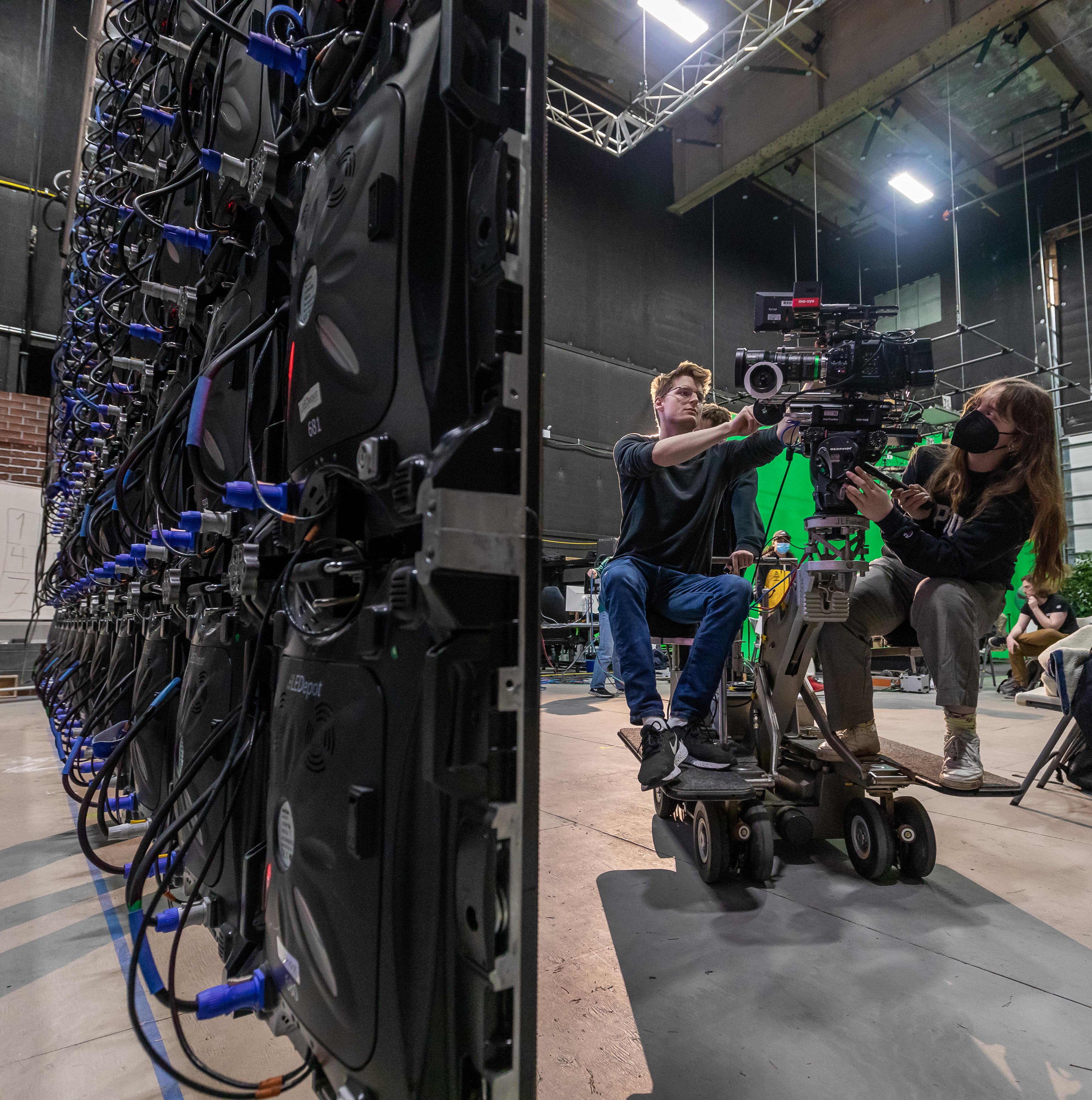
School of Cinematic Arts students set up a shot in front of the wall of LED screens. (DePaul University/Jeff Carrion)
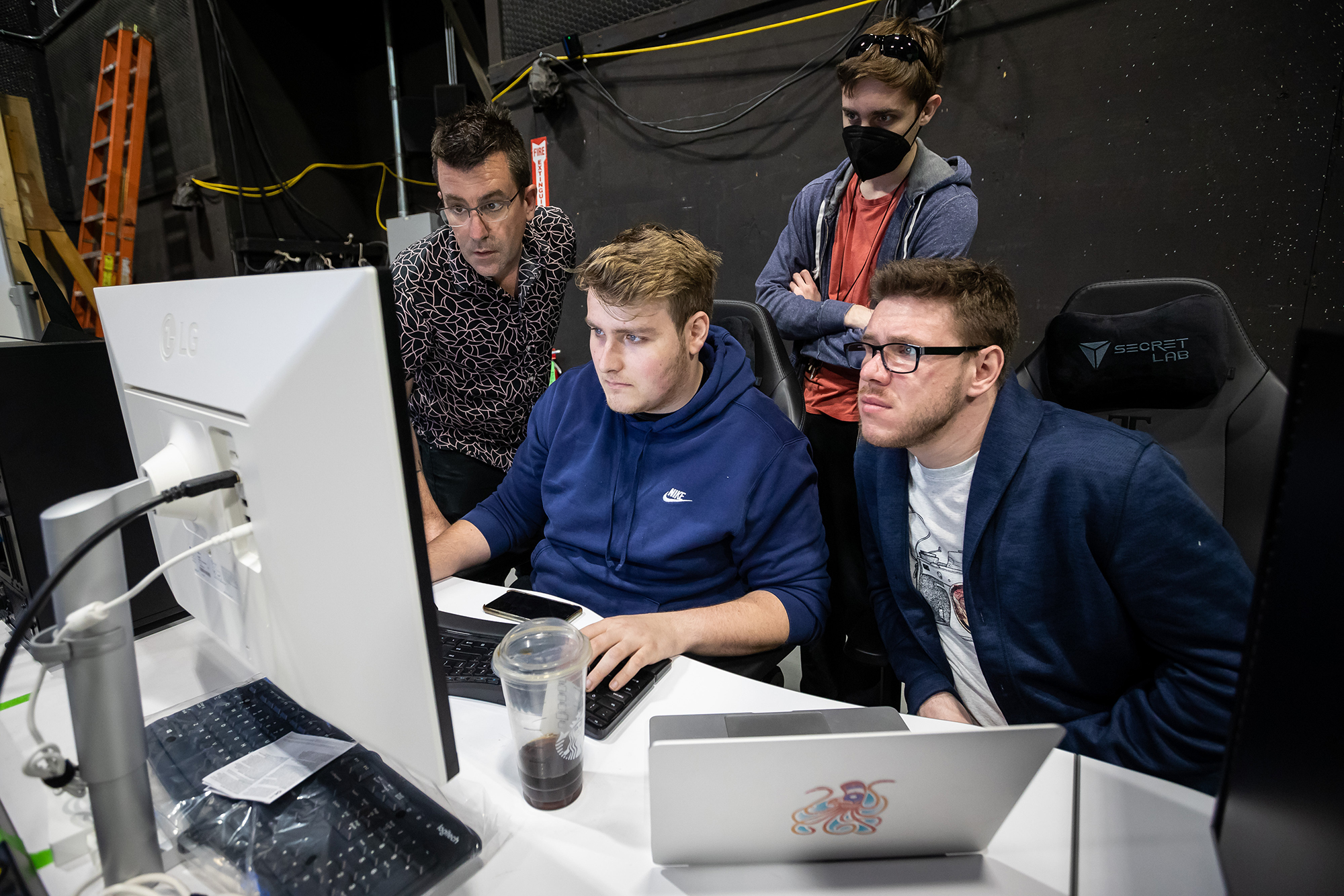
Brian Andrews (left) works with School of Cinematic Arts students on a film in virtual production.
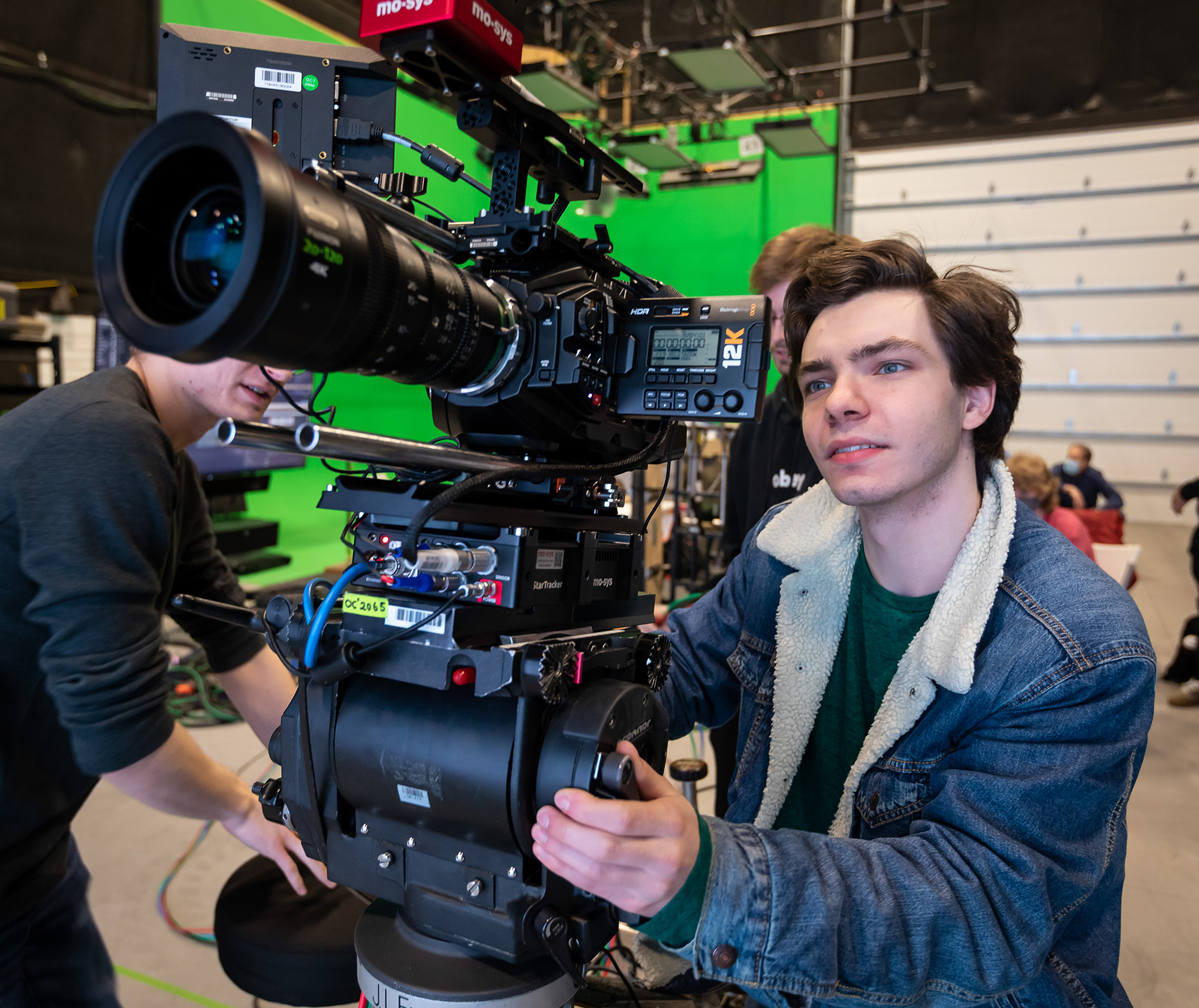
A student is ready to film during virtual production. (DePaul University/Jeff Carrion)
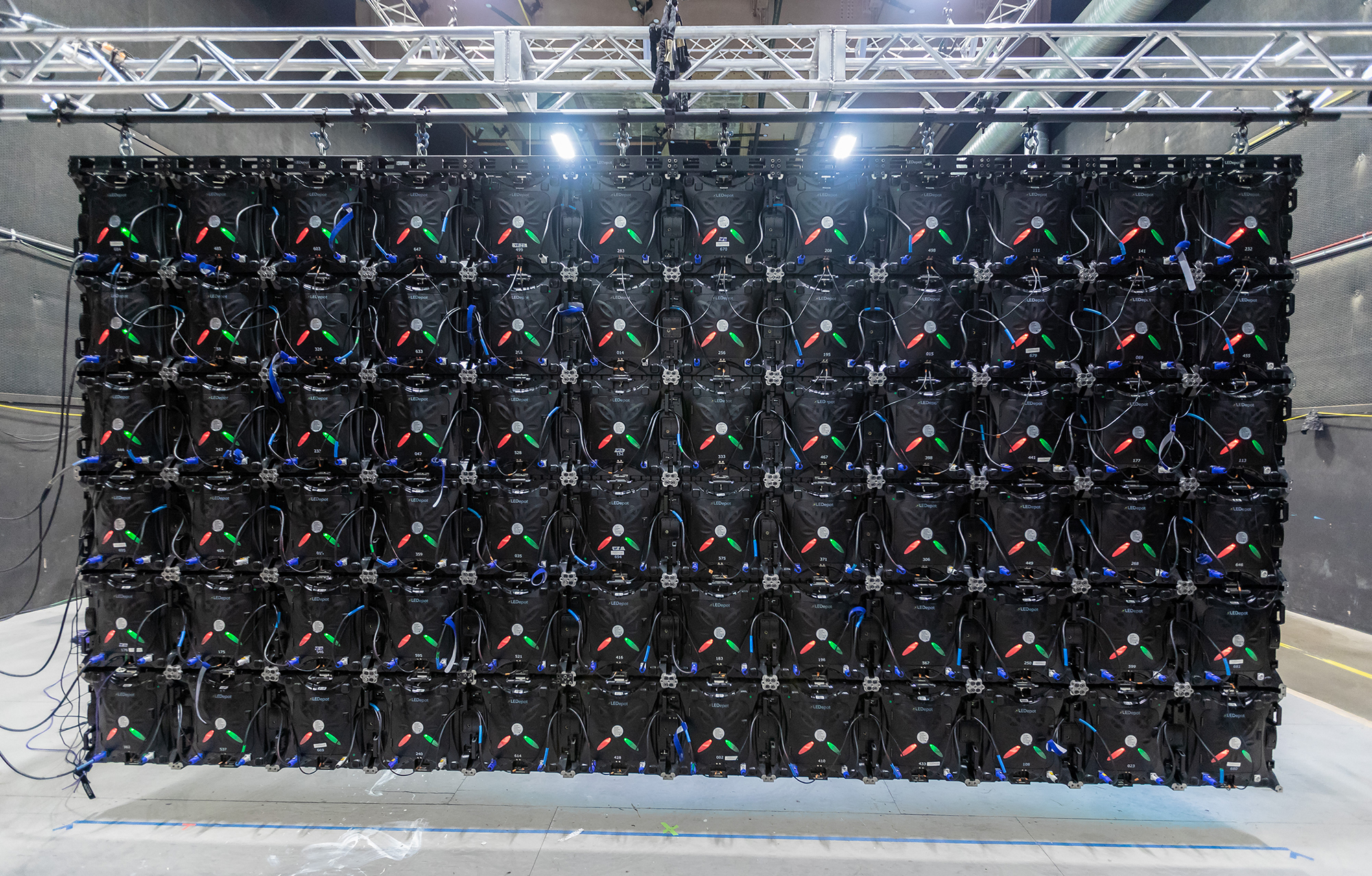
A wall of LED screens powers the virtual production stage, along with game development software. (DePaul University/Jeff Carrion)